Tuesday, September 1st
| 10:00–11:30 a.m. | Opening Day Kickoff , Montag Den To kick off ICL Opening Day, join the group for a special coffee and refreshments at 10:00 a.m. The program starts at 10:30 a.m. as we begin the Fall Semester of 2015. |
| 11:30 a.m.–12:30 p.m. | Opening Day continues, Montag Den During the second hour, we will start by introducing our new ICL members. Second, we will have announcements. Third, we will review ICL Membership Policies/Procedures.. |
| 1:30 – 3:30 p.m. | "State of the State Economy," Oregon State Economist Mark McMullen [Tom Hibbard], Ford 122
State Economist Mark McMullen will review Oregon's recent economic performance and future prospects, focusing on the challenges to private business, the public sector, and labor force, as the U.S. slowly emerges from a severe economic recession. Mark McMullen was named interim Oregon State Economist in September, 2011. Since then, McMullen has directed the Oregon Office of Economic Analysis, which, among other duties, prepares the quarterly revenue forecasts on which the Legislature bases its biennial budget. In April, 2012 he was officially named State Economist. |
Thursday, September 3rd
| 10:30 -11:30 a.m. | "The State of ICL," Mark Kasoff, Ford 122
|
| 11:30 a.m.-12:30 p.m. | “A VISUAL GUIDE TO THE UNIVERSE” LECTURE 3: MARS-WATER AND THE SEARCH FOR LIFE,” VIDEO LECTURE, PROF. DAVID M. MEYER.[Paul Rice], Ford 122
|
| 1:30 – 2:30 p.m. | "Michelangelo", Ford 122
Michelangelo's drawings are some of the greatest of all time. Fragile survivals from over 500 years ago, they can be studied and admired as things of great technical skill and enormous beauty, but they show us something else as well: they show us Michelangelo thinking. Michelangelo would have felt exposed seeing us look at his drawings. And that's what makes them exciting: they give us a thrilling insight into how this genius sculptor, architect and painter worked: they bring us closer to the master. From pen studies made when he was in his early twenties to the visionary crucifixion scenes carried out six decades later, shortly before his death, this film illuminates the high points of Michelangelo's career. The film observes a life class at the Prince's Drawing School and uses the male sitter they are drawing to see how precisely Michelangelo studied his great obsession: the human body. From the sketch of God giving life to Adam for the Sistine Ceiling, to drawings in preparation for the Last Judgement and the great last works on the crucifixion, the film traces the remarkable evolution of some of the world's most celebrated artworks. |
| 2:30–3:30 p.m. | "Katriniana: Literary and Artistic Responses to Hurricane Katrina," Doreen Simonsen, Ford 122 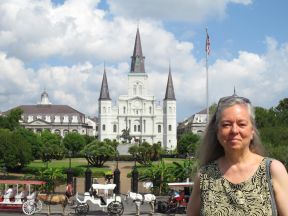 Description: Katriniana is a phrase coined by Susan Larson, former Book Editor for the Times Picayune Newspaper of New Orleans, to describe the inundation of books written about Hurricane Katrina and its impact. In the ten years since Hurricane Katrina hit the Gulf Coast and precipitated the failure of the federal levees in New Orleans leaving 80% of the city underwater, writers, artists, photographers, musicians, filmmakers and many more have been using their skills to respond to the devastation. Benefit works, sympathetic responses, communal rebuilding efforts, celebrations of the rich cultures of New Orleans, and a little bit of carpetbagging characterize the various types of literary and artistic responses to the storm and its aftermath. Description: Katriniana is a phrase coined by Susan Larson, former Book Editor for the Times Picayune Newspaper of New Orleans, to describe the inundation of books written about Hurricane Katrina and its impact. In the ten years since Hurricane Katrina hit the Gulf Coast and precipitated the failure of the federal levees in New Orleans leaving 80% of the city underwater, writers, artists, photographers, musicians, filmmakers and many more have been using their skills to respond to the devastation. Benefit works, sympathetic responses, communal rebuilding efforts, celebrations of the rich cultures of New Orleans, and a little bit of carpetbagging characterize the various types of literary and artistic responses to the storm and its aftermath. This presentation will highlight the various types of books, recordings and films created since the Hurricane, focusing on literary and humanistic works, to the exclusion of flood of government documents, scientific reports, and social scientific analyses. The works discussed will also be on display in the Mark O. Hatfield Library until September 23, 2015. Biography: Doreen Simonsen grew up in Astoria, Oregon. She attended the University of Oregon and the University of Michigan. From 1993 to 2001, she lived in New Orleans and worked as a Reference and Instruction Librarian at Loyola University, New Orleans. She has been the Humanities & Fine Arts Librarian at the Mark O. Hatfield Library at Willamette University since 2001. |
Tuesday, September 8th
| 10:30 a.m.-12:30 p.m. | "Great Decisions: Brazil's Metamorphosis," [Phil and Maureen Caudill], Ford 122
Phil and Maurine Caudill will be coordinating this topic. |
| 1:30 – 3:30 p.m. | "Water in the Klamath Basin," Donald Negri [Tom Hibbard], Ford 122
In the 1990’s the Endangered Species Act listed two fish species in the basin that made agricultural water supplies susceptible to cutbacks especially in drought years. Also during the 90’s the Confederated Klamath Tribes began to assert their historical water rights magnifying the threat to agricultural production in the region. Then in 2001, the conflict erupted into violence as the federal government mandated the water supply head gates be closed to protect endangered fish. Since that time the battle over water allocation in the basin has be waged in Congress and the courts with no end in sight. The prospect of climate change reducing long-run water supplies in the region has also confounded any conflict resolution. After graduating from the University of Michigan in 1986 with a Ph.D. in economics, Professor Negri served as a Research Economist on the staff of the Economic Research Service, USDA from 1986 to 1989. In 1990 he joined the faculty of Willamette University in Salem, Oregon. Professor Negri served two stints as Associate Dean of the College of Liberal Arts, from 1999 to 2003 and from 2008 to 2013. Professor Negri’s courses include: Principles of Economics, Economic Statistics, The Economics of Sustainability, Environmental Economics, and Econometrics. His research interests include: common property resources, the economics of water and irrigation, and the impact of climate change on U.S. agriculture. He is currently studying the allocation of land and water on federally financed water supply districts. |
Thursday, September 10th
| 10:30 a.m.-12:30 p.m. | "Sexual Abuse: Dispelling the Myths & Misconceptions," Michael Hubbard [Jinx Brandt], Ford 122
Mr. Hubbard will discuss the more common myths and misconceptions; and he will provide an overview of the evolution and current state of sexual offender treatment, including the unique issues of sexual offender therapy at the Oregon State Hospital. Biography: His career, however, started in medicine in 1972 at Upstate Medical Center in Syracuse, when Michael embraced an embryonic new field of Transplant Immunology, at that time the matching of kidneys for transplantation. He collaborated with others in the field worldwide, helping to standardize the field and forming what is today the Association for Histocompatibility and Immunogenics, an organization for standards and licensing of organ procurement and transplantation. This experience drew Michael to join the Renal Transplant Program at Oregon Health Sciences University in 1975. In 1979, he and two colleagues started Oregon’s first biotechnology company, Epitope, Inc., and were also co-founders of the Oregon Biotechnology Association. As President and Chief Executive Officer of Epitope, Michael guided the company from a small diagnostic laboratory to a Beaverton-based public (NASDAQ) company with 110 employees. Epitope, which later merged and became OraSure Technologies Inc., developed the first HIV confirmatory test; and later went on, an oral HIV test. Michael and the company’s Chairman left Epitope in 1990, and formed Sovereign Ventures LLC, a Portland-based consulting and investing firm, focused primarily on assisting a number of start-up medical/biotechnology-based companies. Two of those companies Dublin, Ireland-based Trinity Biotech plc, and Corvallis-based AVI BioPharma Inc. (now Sarepta Therapeutics Inc.), for which Michael was Director of Corporate Communication from 2003 to 2008. In 2008, Michael bid farewell to biotechnology and switched careers to counseling. He found the more specialized field of sexual offender therapy both intriguing and dynamic. Michael returned to graduate school, receiving his MA in Counseling from Corban University. Given his additional interest in working with juveniles, he also trained at the Kempe Center in Denver with Gail Ryan, co-author a number of works, including the highly-regarded text, Juvenile Sexual Offending. In 2011, and due to his background and training in the field, Michael was hired by a small and newly restructured Sexual Offending Treatment Program, part of the Psychology Department at OSH. Since then, Michael has helped reshape and grow the program, has written several articles in the field, has presented in OSH’s Psychology Department’s CE Program, and gives annual presentations to Masters counseling programs at Corban and Pacific Universities. He continues with group and individual therapy, on program development and research, and assists in evening groups with his wife, a psychotherapist in private practice. He is a Clinical Member of the Association for the Treatment of Sexual Abusers. Through the years, Michael has served on a number of Boards of corporations and non-profit organizations, the latter of which included the Foundation Board of SUNY Empire State College in Saratoga Springs, New York and, for 17 years—five as Chairman—on the Board of The Dougy Center for Grieving Children and Families, a Portland-based non-profit which became a model for over 600 similar grief centers worldwide. Outside of work, he and his wife own a small farm; and Michael’s interests range from farming, horticulture and landscaping to horses, carpentry, history, wines, music—including bagpipes and viola, instructing and composing—and writing. He is also Pipe Major of the Clan Macleay Pipe Band in Portland, and has been an instructor in junior bagpipe bands. |
| 1:30 – 3:30 p.m. | Title TBA, Craig Goodworth [Bob Muir], Ford 122
Art has, and continues to generate meaning for me. My artwork explores the body, place, animals, ritual and archetypes. I am interested in both solitary practice as well as collaborative endeavors. Athletics and manual work inform my art-making. I am convinced of the relationship between art and life. Artist/writer Craig Goodworth received a Bachelor of Fine Arts from the Maryland Institute College of Art and a Master of Liberal Studies in Sustainable Communities through Northern Arizona University. Following his time as an artist-in-residence at an Eastern Orthodox monastic community in rural northern New Mexico, he worked on a collection of writings under the Thomas Mullen Writing Fellowship at the Earlham School of Religion. He completed his Master of Fine Arts through Azusa Pacific University in 2010. While his formative training was in sculpture and aesthetic/theological issues related to the body, his present interdisciplinary practice involves working in a variety of media, including drawing and sculpture as well as performance that he documents with video. Craig has worked on a project that engages immigration and the social body in his home state of Arizona through the Gimilus Chassidum Fellowship. He was the artist practitioner in residence (2011-2012) in the Center for Peace and Justice at George Fox University in collaboration with the Visual Arts department . Craig has exhibited his artworks and lectured throughout the United States and abroad. During the past year he has been doing research under a Fullbright Grant on a project addressing ancestry and land in the Slovak Republic. Craig enjoys walking, manual work and travel. |
Tuesday, September 15th
| 10:30 a.m.-12:30 p.m. | "Oregon’s Seventh Poet Laureate," Peter Sears [Lois Rosen], Ford 122
As Poet Laureate, Peter Sears aims to “partner” with others in advocating for poetry. He expects to give numerous public readings and work to educate citizens as well as business and state leaders about poetry’s value and importance to Oregon’ culture. Governor John Kitzhaber has named Peter Sears to a two-year appointment as poet laureate of Oregon. Sears will be Oregon’s seventh poet laureate since 1921. A graduate of Yale and the Iowa Writers Workshop, Peter Sears came to Oregon in 1974 as writer-in residence at Reed College in Portland, Oregon. He has served as Dean of Students at Bard College, community services coordinator for the Oregon Arts Commission, and director of the Oregon Literary Coalition. He currently teaches in the Pacific University low-residency MFA department, and splits his time between Corvallis and Portland, Oregon. His work has appeared in several nation magazines and newspapers such as Saturday Review, The New York Times, The Atlantic, Mother Jones, The Christian Science Monitor, and Rolling Stone, as well as in literary magazines such as Field, New Letters, Iowa Review, Poetry Northwest, Antioch Review, Ploughshares, and Seneca Review. Sears is the author of three full-length poetry collections -- Tour: New and Selected Poems, The Brink, and Green Diver, a number of poetry chapbooks, and books on teaching writing, including Secret Writing, and I'm Gonna Bake Me a Rainbow Poem. |
| 1:30 – 3:30 p.m. | "Dreamers, Geniuses, and Eccentrics in Oregon History," Steve McQuiddy [Bob Muir], Ford 122
Steve McQuiddy writes and lectures on the eccentric margins of our history and culture. His books include Here on the Edge, a finalist for the Dayton Literary Peace Prize, and The Fantastic Tale of Opal Whiteley, featured on the TV series Oregon Experience. He has written for Salon, Mother Jones, and the Seattle Times, and been awarded by the Society of Professional Journalists. He currently teachers writing at Lane Community College in Eugene. |
Thursday, September 17th
| 10:30 - 11:30 a.m. | "bobrauschenbergamerica," WU Theater [Deborah Ehlers], Ford 122
By Charles Mee | Director: Jonathan Cole A playful trip through the life and work of artist Bob Rauschenberg. Filled with the bizarre and ridiculous – the world’s worst collection of chicken jokes, a human martini and a pizza delivery man’s monologue – this collection of images and events bridges the gap between art and life. Director Jonathan Cole will be discussing the play. Runs September 24 – October 10, 2015 |
| 11:30 a.m.-12:30 p.m. | "The Story of Human Language Video Series: Does Culture Drive Language Change?" Prof. John McWhorter [Jinx Brandt], Ford 122
Amateur linguist Benjamin Lee Whorf presented a hypothesis in the 1930s that features of our grammars channel how we think. This may encourage a sense that language structure and, by extension, change is driven significantly by culture rather than being an independently driven process. However, the Sapir-Whorf hypothesis was based on faulty evidence and is even counterintuitive. In experiments, it has been shown to be true only in small degrees, such as color perception. Language and culture are surely related, but not as intimately as some researchers would assume. |
| 1:30 – 2:30 p.m. | "How to Listen to and Understand Great Music, Video Lecture: Berlioz's Symphonie fantastique, Part 1," Dr. Robert Greenberg [Solveig Holmquist], Ford 122
Program music allowed many Romantic composers to meet the challenges of creating musical structures that were both compatible with Romanticism's need for expressive individuality and, at the same time, provided a source of compositional cohesion that audiences could understand and follow. One type of program music, the program symphony, is exemplified by Hector Berlioz's Symphonie fantastique of 1830. The essence of this unique work is the idée fixe (fixed idea), which Berlioz uses to provide abstract, structural coherence in this five-movement masterpiece. |
| 2:30–3:30 p.m. | "How to Listen to and Understand Great Music, Video Lecture: Berlioz's Symphonie fantastique, Part 2," Dr. Robert Greenberg [Solveig Holmquist], Ford 122
|
Tuesday, September 22nd
| 10:30 a.m.-12:30 p.m. | "Bridging Differences: Resolution through Evolution rather than Revolution.," Sati Sil [Bill Griffitts], Ford 122
Globally the human race is challenged to resolve conflicts, often violent, arising out of fear of differences in ethnicity, religious beliefs, language, political ideology or any other perceived unnamed difference. We are faced everyday with some expression of these conflicts, through acts of unspeakable and often unprecedented form of violence with which we are all too familiar. No country or region seems to be immune from such threats, actual as well as potential. Biography: |
| 1:30 – 3:30 p.m. | "Revolution as a Vocation," William T. Smaldone [Bill Griffitts], Ford 122
Bill Smaldone came to Willamette's History Department in 1991. In addition to general surveys in modern European history, he offers courses on German and Russian history, Latin American history, urban history, and the Holocaust. Education: Professor Smaldone's research focuses on twentieth century German and European labor history. His Rudolf Hilferding: The Tragedy of a German Social Democrat (1998) examines the life of one of German social democracy's leading economic and political thinkers from the turn of the century until the collapse of the Weimar Republic in 1933. His second book, Confronting Hitler: German Social Democrats in Defense of the Weimar Republic, 1929-1933 (2009) treats the failure of Germany's Social Democratic leadership in its struggle against Adolf Hitler's National Socialist movement. His newest work, European Socialism: A Concise History, appeared in the fall of 2013. With Mark Blum of the University of Kentucky, Louisville, he is now editing a two-volume collection of documents on Austro-Marxism, an important current of central European socialist thought in the first half of the twentieth century |
Thursday, September 24th
| 10:30 a.m.-12:30 p.m. | "Fat!: The Science, Culture, and Politics of Weight," Frann Michel [Joyce Zook[, Ford 122
We will explore scientific research that looks beyond the simple "calories-in-calories-out" model of weight regulation, and we will scrutinize the presumed links between weight and health. We will critique popular cultural representations of fat people, and will attend to problems of size discrimination as well as to movements for fat acceptance and health at any size. We will consider the intersection of gender, class, and race in the socioeconomics of weight and weightism; the role of the food industry and the diet industry; and the impacts of capitalism, geography, and government policy. Bio: I helped found the Women's and Gender Studies program at Willamette, and also contribute to the American Ethnic Studies program and the Film Studies program. My publications have addressed feminist and queer theory, and have focused on narrative fiction and film. I teach courses in American literatures, literary and feminist theory, speculative fiction, and film studies. Professor Michel has graciously provided her PowerPoint file for inclusion on this web site. You can view it as a PDF document (PowerPoint not required) by clicking about Fat! The Science, Culture, and Politics of Weight. Note that this is a relatively large file (7.2MB)–broadband connection recommended. |
| 1:30 – 3:30 p.m. | "Blue Box Ensemble," [Solveig Holmquist], *CONE CHAPEL*
Sophia Tegart, flute Started in 2011, the Blue Box Ensemble (formerly the Tardis Ensemble) was created with the sole purpose of engaging audiences through fun thematic programs. Although the core is made up of six members, many other musicians will be joining us on a regular basis to add spice to the programs. The Blue Box Ensemble has played on numerous concert series throughout Oregon, including the Old Church Sack Lunch Series, March Music Moderne, and OSU’s Music a la Carte. The Blue Box Ensemble has collaborated with the Jordan Schnitzer Museum of Art in Eugene, OR and presented concerts that portray exhibits by Kara Walker and Lesley Dill. Our goal is to provide concerts that explore distinct time periods, countries, or genres. So, join us on a musical journey through the past, present, and future. Experience music through the eyes and ears of a time traveller! |
Tuesday, September 29th
| 10:30- 11:30 a.m. | "Cancer as a Chronic Illness Including Palliative Care, Advanced Care Planning and Survivorship," Beverly JeffsSteele and Julie Hinson, Ford 122
|
| 11:30 a.m.-12:30 p.m. | "The Story of Human Language Video Series: Language Starts Over—Pidgins," Prof. John McWhorter [Jinx Brandt], Ford 122 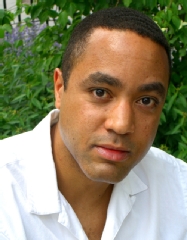 Many situations in the world create stripped-down versions of a language that are suitable for passing, utilitarian use. These are called pidgins, and they have a minimum of the frills that typify older languages. For example, in the 1700s and 1800s, Norwegian and Russian traders used a makeshift language, Russenorsk, with about 300 words borrowed partly from Russian and partly from Norwegian. Native Americans in North America once used an English pidgin of this kind. Although some older languages have less elaborate grammars than others, all have nuanced vocabulary and grammars complex enough to render sophisticated thought. Pidgins do not. Many situations in the world create stripped-down versions of a language that are suitable for passing, utilitarian use. These are called pidgins, and they have a minimum of the frills that typify older languages. For example, in the 1700s and 1800s, Norwegian and Russian traders used a makeshift language, Russenorsk, with about 300 words borrowed partly from Russian and partly from Norwegian. Native Americans in North America once used an English pidgin of this kind. Although some older languages have less elaborate grammars than others, all have nuanced vocabulary and grammars complex enough to render sophisticated thought. Pidgins do not. |
| 1:30 – 3:30 p.m. | "The Cuban Constitution," Michael Wise [Roger Colburn], Ford 122
Michael B. Wise was an attorney and advisor for the United States Commission on Civil Rights from 1971 to 1973 and a trial attorney with the U.S. Department of Justice in the Civil Rights Division from 1977 to 1981. He also was the assistant director of the Notre Dame Center for Civil Rights from 1973 to 1977. He joined the Willamette University College of Law faculty in 1981 and currently teaches Civil Procedure, Constitutional Law, Comparative Constitutional Law and Human Rights Law. Professor Wise has written articles and papers concerning constitutional law, comparative constitutional law, civil rights, and court-annexed arbitration. He served as president of the Board of Directors for the Oregon Legal Services Corporation from 1985 to 1987 and was president of the Constitutional Law Committee of the Inter-American Bar Association from 1997 to 1998. In 1998, Wise was a Fulbright Senior Visiting Scholar at the University of Namibia. |


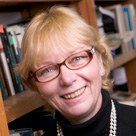 First we will have a presentation by Willamette University’s Associate Dean of Curriculum and Professor of English, Gretchen Moon.
First we will have a presentation by Willamette University’s Associate Dean of Curriculum and Professor of English, Gretchen Moon.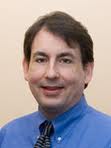
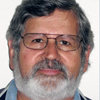 A review of the past, present and future of ICL as part of Willamette University. Panel discussion by long term members, followed
A review of the past, present and future of ICL as part of Willamette University. Panel discussion by long term members, followed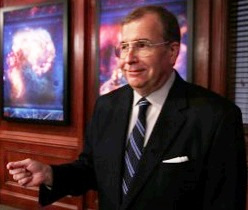 With an atmospheric pressure less than 1 percent of Earth’s and temperatures typically well below freezing, the surface conditions of Mars cannot currently maintain even puddles of liquid water. However, the existence of riverlike surface features and mineralogical evidence indicate that large-scale flows of liquid water occurred on Mars during the first 1 to 2 billion years of its history. Where did the water go? Was there ever life on Mars? Over the past 40 years, NASA has sent a number of spacecraft to orbit and land on Mars to better address such questions.
With an atmospheric pressure less than 1 percent of Earth’s and temperatures typically well below freezing, the surface conditions of Mars cannot currently maintain even puddles of liquid water. However, the existence of riverlike surface features and mineralogical evidence indicate that large-scale flows of liquid water occurred on Mars during the first 1 to 2 billion years of its history. Where did the water go? Was there ever life on Mars? Over the past 40 years, NASA has sent a number of spacecraft to orbit and land on Mars to better address such questions. A joint BBC/British Museum production about the drawings of Michelangelo and the way that they illuminate his life, his artistic development, his religion and his inner torments. The film is presented by Neil MacGregor, Director of the British Museum, and is filmed on location in Florence and in the Sistine Chapel.
A joint BBC/British Museum production about the drawings of Michelangelo and the way that they illuminate his life, his artistic development, his religion and his inner torments. The film is presented by Neil MacGregor, Director of the British Museum, and is filmed on location in Florence and in the Sistine Chapel. Brazil-- it's the "B" in the acronym BRICS, five emerging economies once seen as soon-to-be superpowers. After economic troubles in the 1990s, Brazil has risen to new global prominence-- it's drawing in more investment, working on global issues ranging from climate change to peacekeeping, and even hosting the 2016 Olympics. But some of Brazil's trickiest problems -- deep divisions over how to tackle serious income inequality, weak civic institutions and poor regional leadership -- have held it back.
Brazil-- it's the "B" in the acronym BRICS, five emerging economies once seen as soon-to-be superpowers. After economic troubles in the 1990s, Brazil has risen to new global prominence-- it's drawing in more investment, working on global issues ranging from climate change to peacekeeping, and even hosting the 2016 Olympics. But some of Brazil's trickiest problems -- deep divisions over how to tackle serious income inequality, weak civic institutions and poor regional leadership -- have held it back.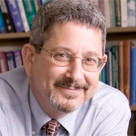 The Klamath Basin has been the site of intense conflict over water resources for more than a decade. The Basin is home to four Native American Tribes, four significant wildlife refuges and a federal irrigation project that provides water to approximately 210,000 acres of farmland.
The Klamath Basin has been the site of intense conflict over water resources for more than a decade. The Basin is home to four Native American Tribes, four significant wildlife refuges and a federal irrigation project that provides water to approximately 210,000 acres of farmland.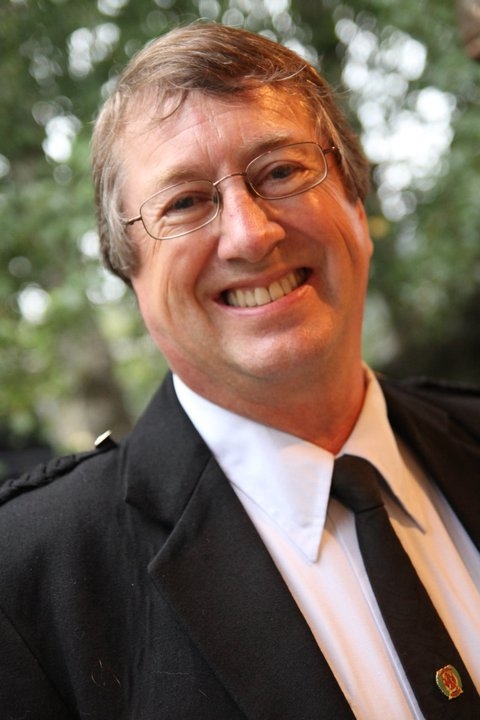 Abuse, particularly sexual abuse, is an understandably emotionally-charged topic. Yet it is also surrounded with myths and misconceptions regarding the offenders, the victims, and treatment. These can have significant implications for society on so many levels. In addition, the field of sexual offender treatment, arguably complex and somewhat hotly debated, has undergone significant changes in the last decades.
Abuse, particularly sexual abuse, is an understandably emotionally-charged topic. Yet it is also surrounded with myths and misconceptions regarding the offenders, the victims, and treatment. These can have significant implications for society on so many levels. In addition, the field of sexual offender treatment, arguably complex and somewhat hotly debated, has undergone significant changes in the last decades.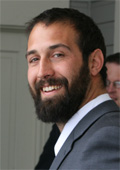
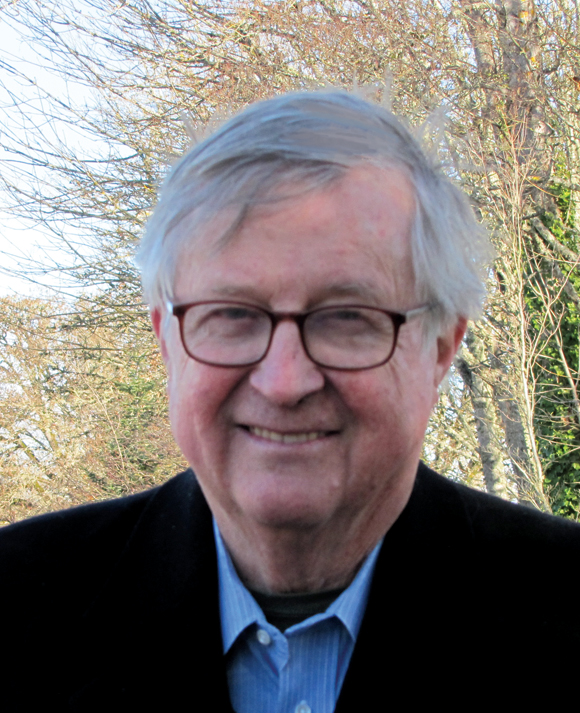
 Steve will present a slideshow for Here on the Edge, his book of how a small group of World War II conscientious objectors on the Oregon Coast plowed the ground for the social and cultural revolutions of the 1960s. The second hour will be on The Fantastic Tale of Opal Whiteley, the story of the little girl from an Oregon logging camp who grew up to become one of the most notorious literary sensations of the 20th century.
Steve will present a slideshow for Here on the Edge, his book of how a small group of World War II conscientious objectors on the Oregon Coast plowed the ground for the social and cultural revolutions of the 1960s. The second hour will be on The Fantastic Tale of Opal Whiteley, the story of the little girl from an Oregon logging camp who grew up to become one of the most notorious literary sensations of the 20th century.
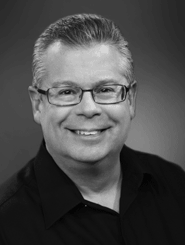 You may remember that last term we studied Beethoven's Fifth Symphony, a masterpiece so monumental that we watched Dr. Greenberg's two lectures on the subject in immediate succession, rather than separating the material. A number of you let me know that you found that approach helpful. Thus emboldened, I'm going to do the same thing with Hector Berlioz's Symphonie fantastique, the single composition most often used to illustrate the ideas and excesses of Romanticism, in college music survey courses.
You may remember that last term we studied Beethoven's Fifth Symphony, a masterpiece so monumental that we watched Dr. Greenberg's two lectures on the subject in immediate succession, rather than separating the material. A number of you let me know that you found that approach helpful. Thus emboldened, I'm going to do the same thing with Hector Berlioz's Symphonie fantastique, the single composition most often used to illustrate the ideas and excesses of Romanticism, in college music survey courses.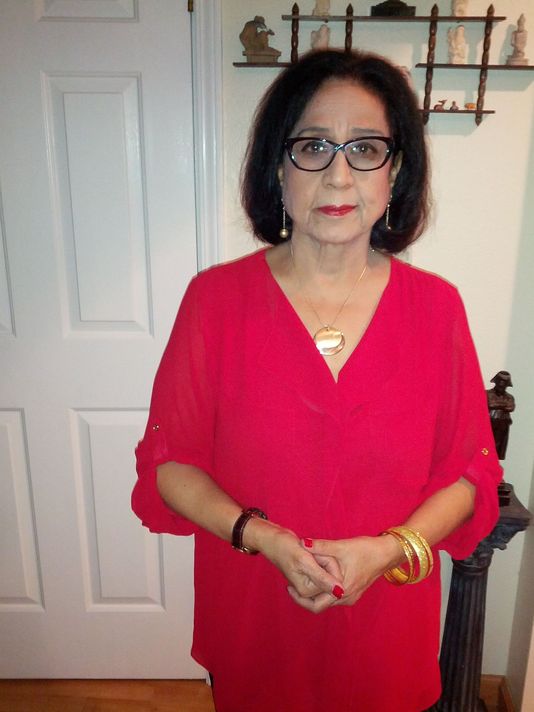
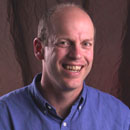 This course centers on the lives of historical figures whose actions transformed their worlds, including Jesus Christ, Martin Luther, Emma Goldman, Rosa Luxemburg, and Ernesto “Che” Guevara. Using biography, autobiography, film, and other materials we will examine the forces that led these individuals to act in ways that gave meaning to their lives and to the lives of others. Among the questions to be explored are: What factors transform individuals and groups from passive acceptors of their condition or the condition of others into dynamic actors who make it their mission to effect radical change? To what extent does the example of others drive a person to act? How do familial and broader social contexts shape a person’s desire to mobilize others? To what extent can an individual’s urge to transform the world come from within? By addressing these questions as they relate to individuals operating in very different historical circumstances, we will strive to better understand the stuff of which revolutionaries are made.
This course centers on the lives of historical figures whose actions transformed their worlds, including Jesus Christ, Martin Luther, Emma Goldman, Rosa Luxemburg, and Ernesto “Che” Guevara. Using biography, autobiography, film, and other materials we will examine the forces that led these individuals to act in ways that gave meaning to their lives and to the lives of others. Among the questions to be explored are: What factors transform individuals and groups from passive acceptors of their condition or the condition of others into dynamic actors who make it their mission to effect radical change? To what extent does the example of others drive a person to act? How do familial and broader social contexts shape a person’s desire to mobilize others? To what extent can an individual’s urge to transform the world come from within? By addressing these questions as they relate to individuals operating in very different historical circumstances, we will strive to better understand the stuff of which revolutionaries are made.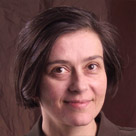 Journalists, and government officials have been telling us that we face an "obesity epidemic" and must fight a "war on obesity," but others have questioned the empirical and ideological underpinnings of these claims. This colloquium takes the perspective of the growing field of fat studies—an approach that asks us to suspend the dominant culture's often reflexive and moralistic negative judgments about fat. How do we know obesity is a problem? Whose problem is obesity? Does your neighborhood make you fat? Does eating (too much) make you fat? Does farm policy make you fat? Will fresh, local, organic food make you thin? What's capitalism got to do with it?
Journalists, and government officials have been telling us that we face an "obesity epidemic" and must fight a "war on obesity," but others have questioned the empirical and ideological underpinnings of these claims. This colloquium takes the perspective of the growing field of fat studies—an approach that asks us to suspend the dominant culture's often reflexive and moralistic negative judgments about fat. How do we know obesity is a problem? Whose problem is obesity? Does your neighborhood make you fat? Does eating (too much) make you fat? Does farm policy make you fat? Will fresh, local, organic food make you thin? What's capitalism got to do with it?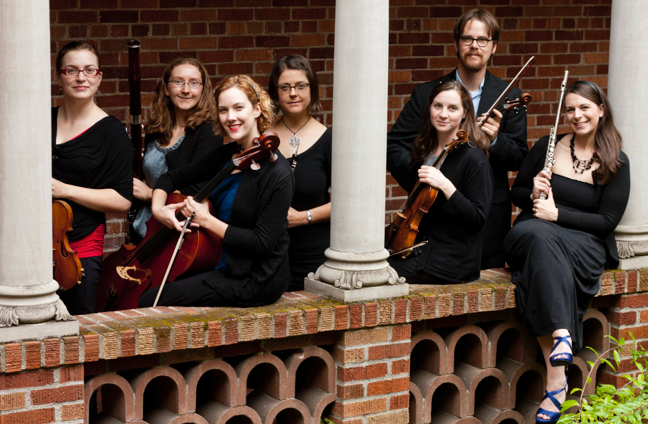 The people performing will be:
The people performing will be: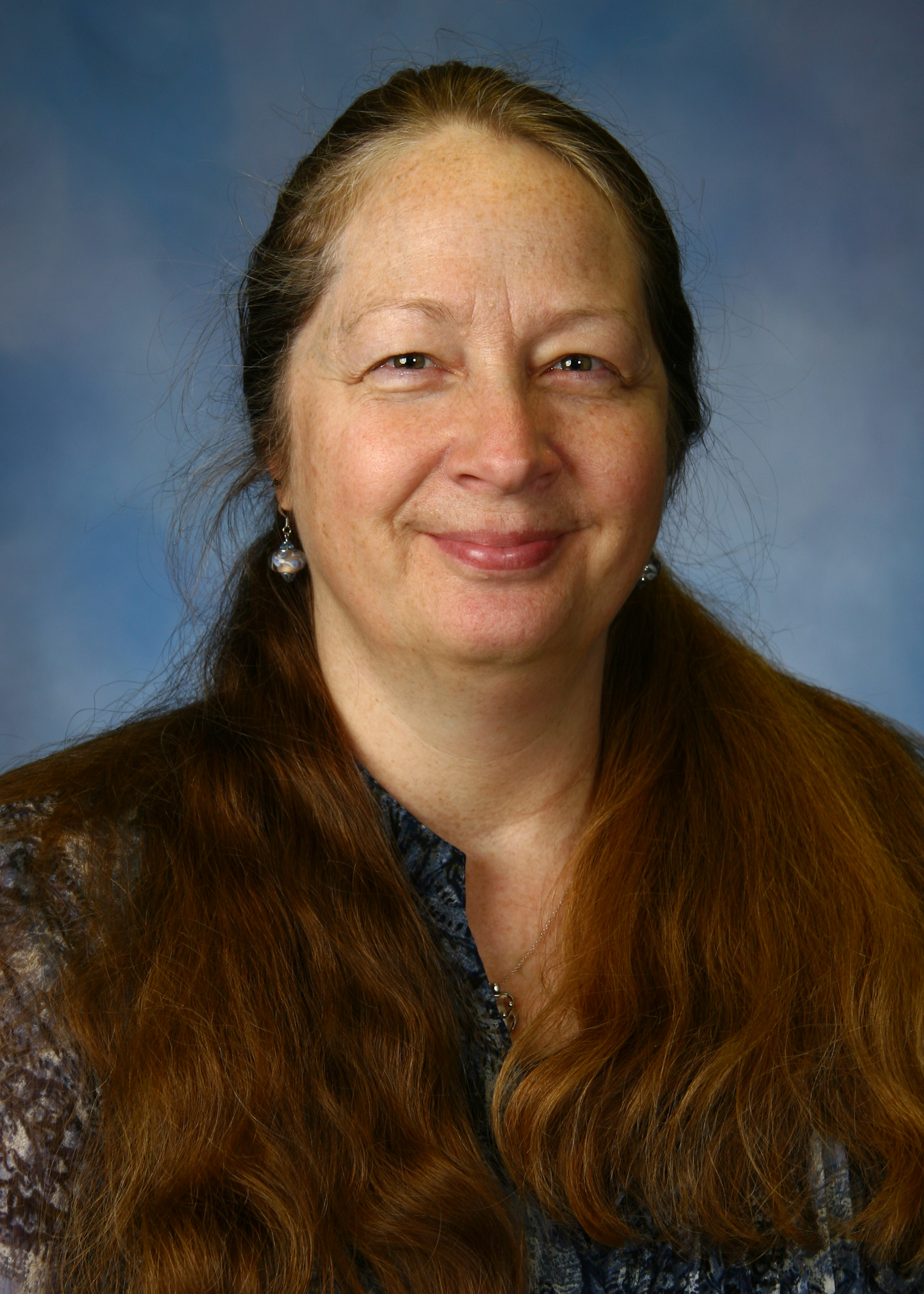 Beverly JeffsSteele recently joined the palliative care team at Salem Hospital. Before coming to Salem Health, Beverly was medical director at Willamette Valley Hospice. Prior to that, she helped launch the palliative care program at Harrison Medical Center in Bremerton, Washington. After graduating from the West Virginia School of Osteopathic Medicine, she completed a residency in family medicine at St. Peter Family Medicine in Olympia, Washington, and then a fellowship in hospice and palliative medicine at the University of Louisville. She is board certified in Family Medicine, Palliative Medicine and is a certified Hospice Medical Director.
Beverly JeffsSteele recently joined the palliative care team at Salem Hospital. Before coming to Salem Health, Beverly was medical director at Willamette Valley Hospice. Prior to that, she helped launch the palliative care program at Harrison Medical Center in Bremerton, Washington. After graduating from the West Virginia School of Osteopathic Medicine, she completed a residency in family medicine at St. Peter Family Medicine in Olympia, Washington, and then a fellowship in hospice and palliative medicine at the University of Louisville. She is board certified in Family Medicine, Palliative Medicine and is a certified Hospice Medical Director.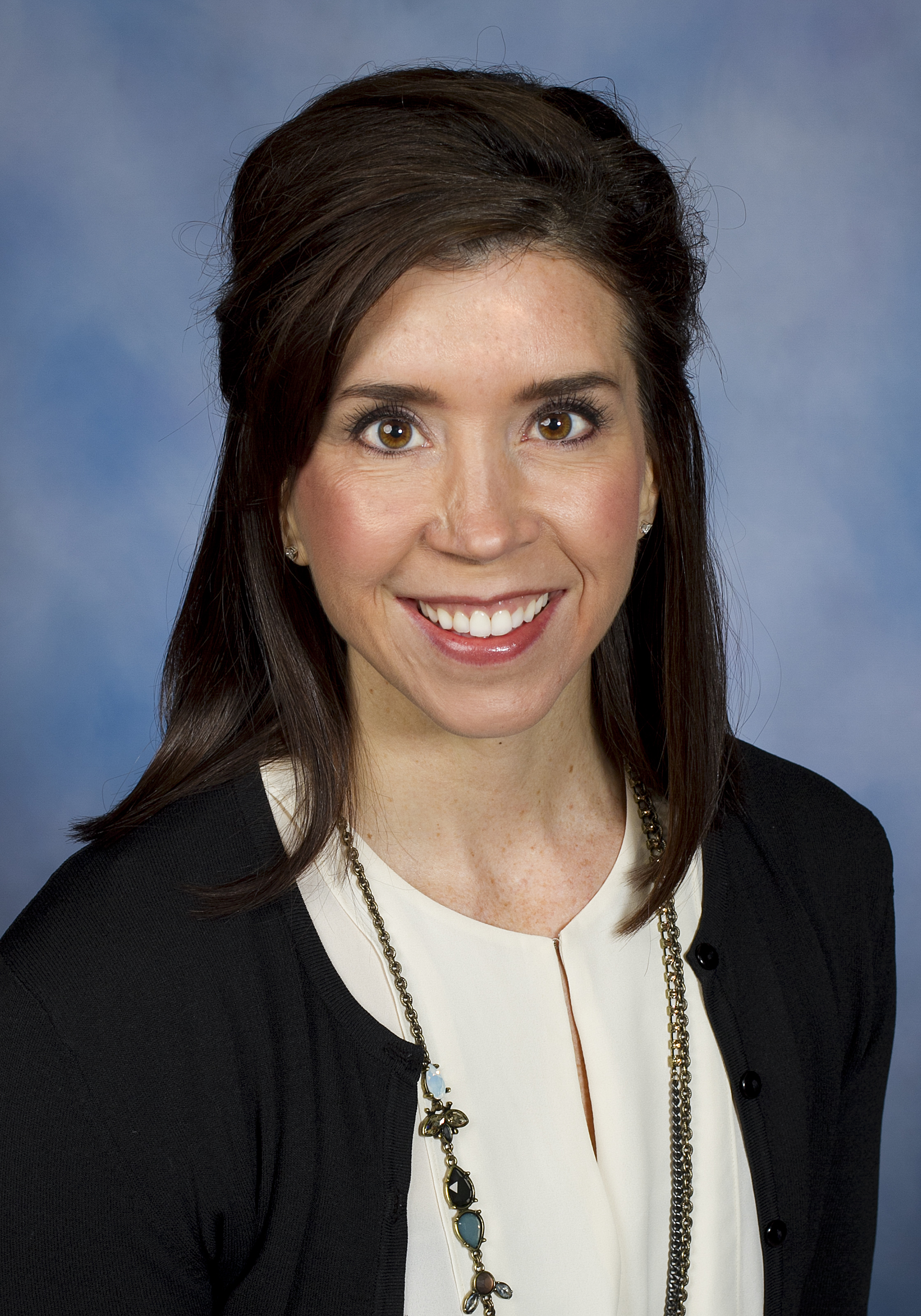 Julie Hinson is the Nurse Practitioner lead for the Salem Hospital Palliative Care program. In her role, she is the main provider for the Outpatient Symptom Management and Supportive Care Clinic of Palliative Medicine. She works with patients and families to address physical, psychological, emotional, and spiritual needs and provides symptom management and supportive care. She also coordinates the provider team and works directly with the medical director. She graduated in 2014 from the University of Cincinnati College of Medicine with her Masters of Science in Nursing with focus in Adult-Geriatric Medicine. She is certified in Oncology and by the American Academy of Nurse Practitioners.
Julie Hinson is the Nurse Practitioner lead for the Salem Hospital Palliative Care program. In her role, she is the main provider for the Outpatient Symptom Management and Supportive Care Clinic of Palliative Medicine. She works with patients and families to address physical, psychological, emotional, and spiritual needs and provides symptom management and supportive care. She also coordinates the provider team and works directly with the medical director. She graduated in 2014 from the University of Cincinnati College of Medicine with her Masters of Science in Nursing with focus in Adult-Geriatric Medicine. She is certified in Oncology and by the American Academy of Nurse Practitioners.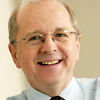 Professor of Law:
Professor of Law: